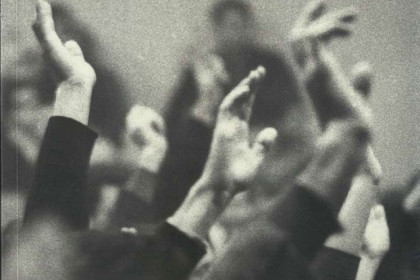
What kind of story has a rich and happy child? Who would feel moved if there’s no blood and pain? Isn’t the story of Bishop Bernardo a better one? He arrived in my city having been sent from Rome and began to preach against the emperor and in favour of the Pope. But everyone here were Ghibellines and they put him in prison. Then they all became Guelphs and asked the Pope if they could have Bernardo as their priest. Bernardo settled in my city and was its bishop for thirty years, caring for its souls, but also involving himself in public affairs and justice. Everybody loved Bernardo. So much that the story is a little boring here. It’s not worth telling the tale of all those turncoats. A more interesting one is the story of Corrado, the son of the emperor Enrico IV, who in those same years rebelled against his father. The poor old man: humiliated by Matilde, dishonoured by two popes and now betrayed by his son, the swine who put the army in the suburbs of the city, expecting to attack his parent, a dishonoured old man on the way to retirement. What a story of power and family life, decadence and meanness! What a stupid story.
I prefer to tell the story of the wolves that were pushed inside the city by the hard winter of 1108: they attacked the house of Bonifacio and carried away his son Oddone. Bonifacio pretended he couldn’t see the blood of his baby. He went outside the walls to find him, followed the wolf-pack, and was never seen again. A bad story. A story of frozen death, a story of terror. But here we are celebrating a birthday, so we all have to be happy. My city was located on the pilgrimage road which ran from Canterbury to Rome, and so the city had many inn-keepers to serve the needs of these travellers. All along the road to Rome there were not just people motivated by faith, but people travelling for business too. They had mules loaded with furs and brocades, oil and cereals. And there was one inn-keeper, Anselmo by name, who began to by a little salt, and then a little incense, and also to sell fustian cloth. He also traded cheese for wool. He was always with merchants, and became one himself. He bought himself some mules, and took wool from my city to the fairs of Flanders and Champagne. It’s a beautiful story of success and capitalism. But Anselmo had false scales. Unfortunately, one day, someone noticed, and they kept him up in Bruges to rot in jail. It’s a bad end, and it would have been better if he’d never started.
So the next story is better, the one about Bertrando, who participated in the first Crusade. He came home in 1108 and found his wife pregnant. He consoled himself by putting up lions in front of the churches. Finally, that’s the right story. The story of Bertrando, the cuckold cavalier.
 English
English  Italiano
Italiano 



